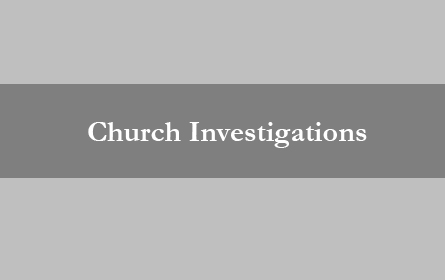ST. PAUL, Minn. (AP) — The Archdiocese of St. Paul and Minneapolis paid millions of dollars in costs associated with clergy misconduct in the last decade, according to internal church documents.
An investigation by Minnesota Public Radio News (http://bit.ly/1aMnkYs ) found that from 2002 to 2011 the archdiocese used two secret accounts that were controlled by the archbishop to pay nearly $11 million in costs related to allegations against priests.
The figure represents about 3 percent of overall archdiocese revenues in those years.
MPR reported Thursday that the money was used for persuading priests to leave active ministry, for legal settlements, for therapy for victims and priests, and other costs. The documents also show the archdiocese paid a private investigator $112,000 over 10 years.
The system allowed archdiocese leaders to remove priests accused of child abuse or other misconduct without attracting attention. But the secrecy also left the archdiocese vulnerable to embezzlement.
In a statement Thursday, the archdiocese said a new chief financial officer hired in December 2012 has started implementing procedures for greater transparency.
“We take very seriously our moral and fiduciary responsibilities to the people we serve,” the archdiocese said.
Churches don’t have to file any paperwork with government regulators. There is a finance council that gives the archbishop advice, but he alone is allowed to make spending decisions.
The archdiocese plans to release full, audited financial statements for fiscal year 2013 in February.
In one case, MPR reported, the archdiocese wanted to remove a priest who had fathered a child.
In 2002, then-Archbishop Harry Flynn agreed to pay the Rev. Stanley Kozlak $1,900 a month in “disability” for life, $800 a month in rent for life, and $980 a month until he became 67 and could receive his full Social Security payments, documents show. The agreement also called for Kozlak’s attorney to negotiate a child-support settlement.
Kozlak, 72, told MPR that he and church leaders have lived up to terms of his retirement agreement and that the matter was a private issue between him and the archdiocese.
“These are matters that I have dealt with and I have taken care of in my life,” said Kozlak. “Believe me; I paid a price for it.”
MPR reported payments associated with clergy misconduct came from separate, secret accounts. One account paid costs connected to priests accused of sexually abusing children. The other paid costs related to the abuse of adults, or to financial misconduct.
The expenditures were typically classified as “disability” pay. A don’t-ask culture kept archdiocese employees from digging deeper, MPR reported.
Scott Domeier, a former top archdiocese accountant who pleaded guilty to stealing more than $650,000 from the church, said church leaders knew about the payments and said settlements like Kozlak’s were crafted to keep people quiet.
“Everybody knew not to ask questions,” Domeier said. “Because what was behind those requests for payments never got into our files, and that was on purpose.”
Financial statements obtained by MPR News show the archdiocese had operating revenue between $35 million and $40 million for five years ending in 2011, and that its balance sheet is healthy, with assets growing from $54 million to $61.5 million since the market downturn in 2008.
Cash levels have jumped from $2.6 million in 2007 to $12.8 million in 2011.
Today, the archdiocese faces financial pressure from several lawsuits over clergy misconduct.
While the archdiocese says it can weather a financial storm, local parishes have said they are feeling some financial pushback from Catholics who believed money they donated was going to benevolent causes.



